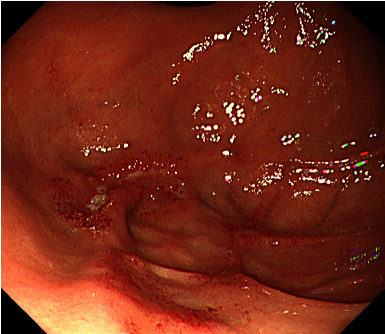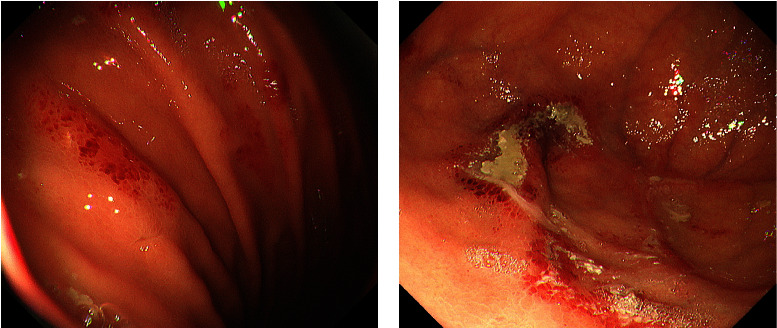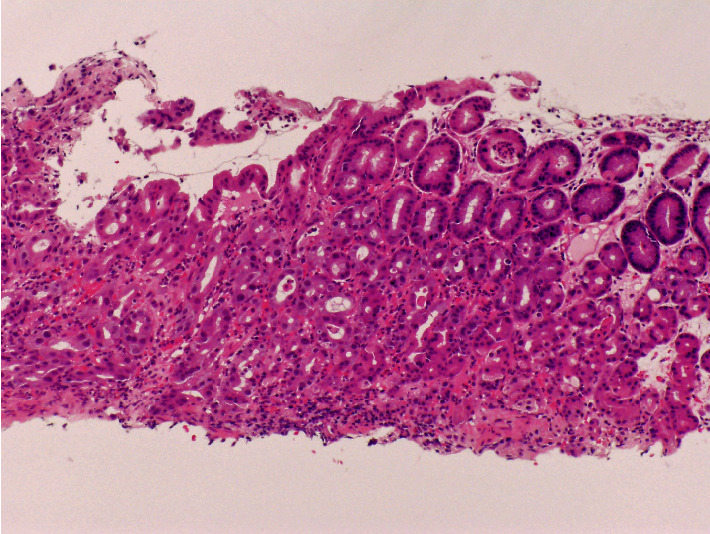Zinc Acetate Dihydrate Tablet-Associated Gastritis Occurring in a Post-Hematopoietic Stem Cell Transplant Recipient.
IF 0.6
Q4 GASTROENTEROLOGY & HEPATOLOGY
引用次数: 0
Abstract
A 65-year-old Japanese woman underwent umbilical cord blood transplantation for acute myeloid leukemia. Zinc acetate dihydrate tablets were administered for hypozincemia after transplantation, and vomiting and appetite loss occurred soon thereafter. Esophagogastroduodenoscopy revealed mucosal redness, erosion, white coat adhesion, and ulcers. Although graft-versus-host disease, intestinal transplant-associated microangiopathy, and cytomegalovirus infection were considered as possible causes, we diagnosed the patient with zinc acetate dihydrate tablet-associated gastric mucosal alterations based on the endoscopic features. This case reinforces the notion that medication-associated gastric lesions should be suspected in patients taking zinc acetate dihydrate tablets.



二水合醋酸锌片相关胃炎发生于造血干细胞移植后受者。
一名65岁的日本妇女因急性髓性白血病接受了脐带血移植。移植术后低锌血症患者给予醋酸锌二水合物片,术后很快出现呕吐和食欲减退。食管胃十二指肠镜检查显示粘膜红肿、糜烂、白大褂粘连和溃疡。虽然移植物抗宿主病、肠道移植相关微血管病变和巨细胞病毒感染被认为是可能的原因,但我们根据内镜特征诊断患者为醋酸锌二水片相关的胃粘膜改变。本病例强化了这样一种观念,即服用醋酸锌二水合物片的患者应怀疑与药物相关的胃病变。
本文章由计算机程序翻译,如有差异,请以英文原文为准。
求助全文
约1分钟内获得全文
求助全文
来源期刊

Case Reports in Gastrointestinal Medicine
GASTROENTEROLOGY & HEPATOLOGY-
自引率
0.00%
发文量
33
审稿时长
14 weeks
 求助内容:
求助内容: 应助结果提醒方式:
应助结果提醒方式:


